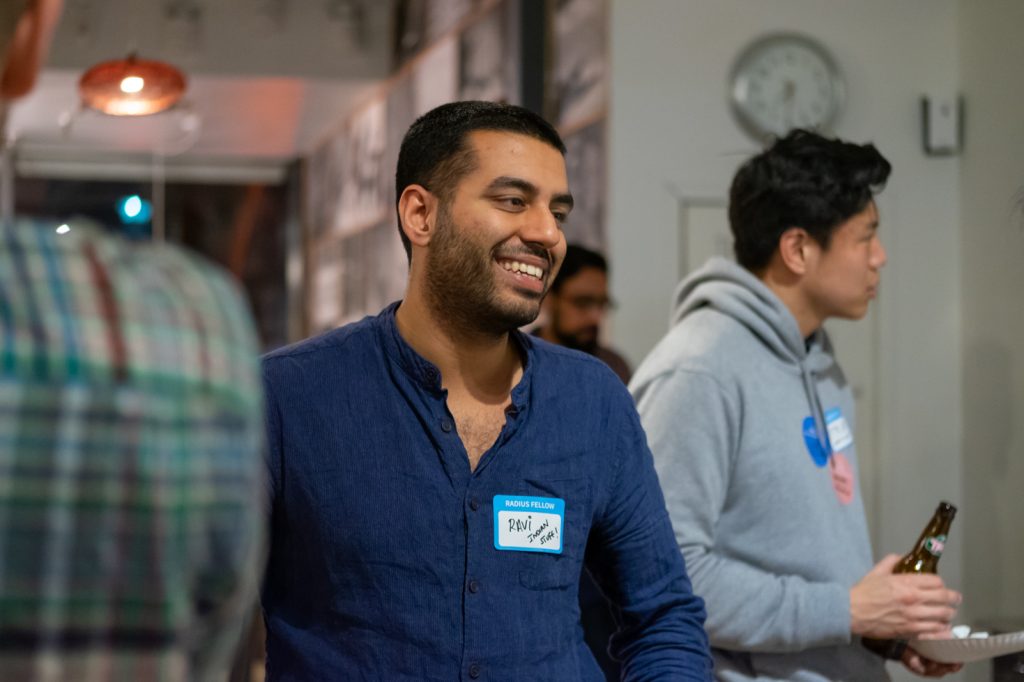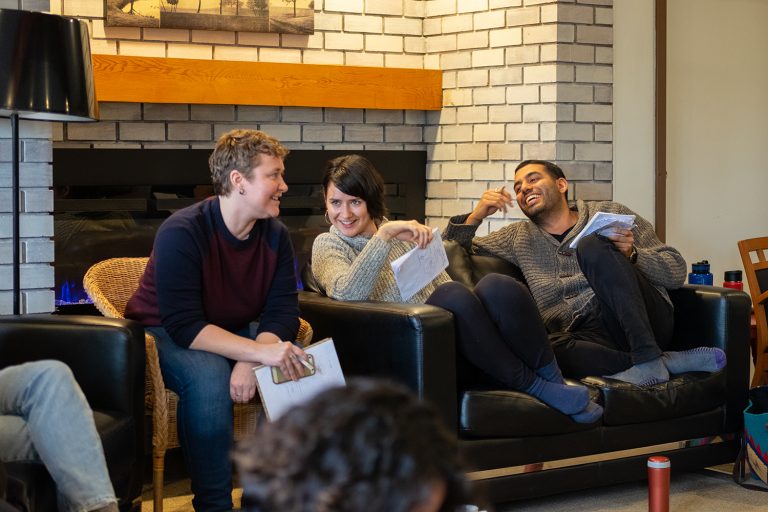
Guest blogger, Ravi Patel, is a member of the 2019 RADIUS Fellowship. In this blog, he examines which of the Fellowship sessions have had the biggest impact on him since he moved to Canada in 2018.
I moved to Vancouver in April 2018, after 27-years growing up in London, UK, and I still find myself looking in awe at the city’s mountain backdrops and sandy beaches. Yet, there’s a darker side to this beautiful country that many people are not familiar with when they first think about The Land of Maple Syrup.
I admit I am ashamed that I did not know more about this country’s colonial history before moving here. “What do you know about Britain’s influence on Canada’s colonial policies?” an elderly gentleman asked me while at a Karen Joseph presentation on reconciliation at SFU. I told him I was new to Canada from the UK, and he wasn’t surprised that I didn’t have a clue about his questions. Yet, through the RADIUS Fellowship, I am beginning to learn more about the struggles of Indigenous Peoples in Canada. My rose-tinted perception of the country has certainly become a lot more muddied.
If you’re non-white and live in London, asking someone about their ethnicity and background is a very easy thing to do. Sometimes you do it in order to force a sense of shared community. For immigrants in London, there can often be a sense that you “deserve” to be here – it is easy to find other immigrants or people of color and share moments of camaraderie centered on raising two fingers at Britain’s awful colonial legacy. It is this history that makes it almost ‘easy’ for immigrants to believe that Britain should now accept them and future generations of immigrants with open arms.
But now that I’m in Canada, I’ve lost my sense of belonging. I realize I do not “deserve” to be here. I am a new immigrant living on unceded territory and the rent I pay goes to non-Indigenous private landlords. How do I reconcile being born in a country that systematically oppressed my ancestors through its colonial hegemony, to now being an immigrant in a country where its own Indigenous people are fighting against decades of colonial rule and power?
The RADIUS Fellowship has helped me to unpack some of these complex issues. I turn up to a weekly workshop session surrounded by a brilliant cohort of Fellows, and the most thoughtful facilitators who push me to think critically.
Here are three Fellowship sessions that have had the most impact on me:

Opening weekend retreat – personal story mapping
The facilitators led us through a session on how to visually draw and present our personal story using the metaphor of the start and journey of a flowing river. I’ve never had the chance to reflect on who I am today in such a visual way. The process helped me to stitch together disparate bits of my personal story and background and help paint a clearer picture of how the person I am today is a result of the experiences that have shaped me.
Positionality session by Laura Cuthbert – Status, Power and Rank
In this session, we learned about a framework from Leticia Nieto that helps us to understand how every individual has a Target (oppressed) and Agent (oppressor) identity. For example, I have an Agent identity as a man in the tech workplace. However, I have a Target identity (being brown skinned and of Indian heritage) when working in an office where the majority of people are white. This session really helped me to understand the concept of cultural assimilation and the survival skills that minorities often deploy in order to ‘fit in’ with the dominant (and often oppressive) societal structures around them.
Deep Democracy
This session forced all Fellows to get out of our echo chambers and begin to master the art of healthy conflict. Deep Democracy is a facilitation technique that creates carefully constructed spaces where “ordinary people, not just experts, can say what they think and hear from others who disagree with them or have different experiences.” During the session, we took part in something called the Soft Shoe Shuffle. Participants physically place themselves along an imaginary spectrum in the room (‘strongly agree’ at one end and ‘strongly disagree’ at the other) relative to a specific topic that is up for debate. If you agree with the substance of an argument that someone makes, you can silently shuffle towards them to demonstrate your support for their viewpoint. Or you can move further away from someone you disagree with. I found this to be one of the most valuable sessions in terms of improving my ability to listen deeply and grapple with two opposing ideas and understanding the merits of both.
The RADIUS Fellowship has shaped my move to Canada and enriched it in ways I did not imagine! I’m looking forward to staying connected with the community as I continue to learn, grow and begin to take the learnings from the workshops and try to apply them in the real world around me.
